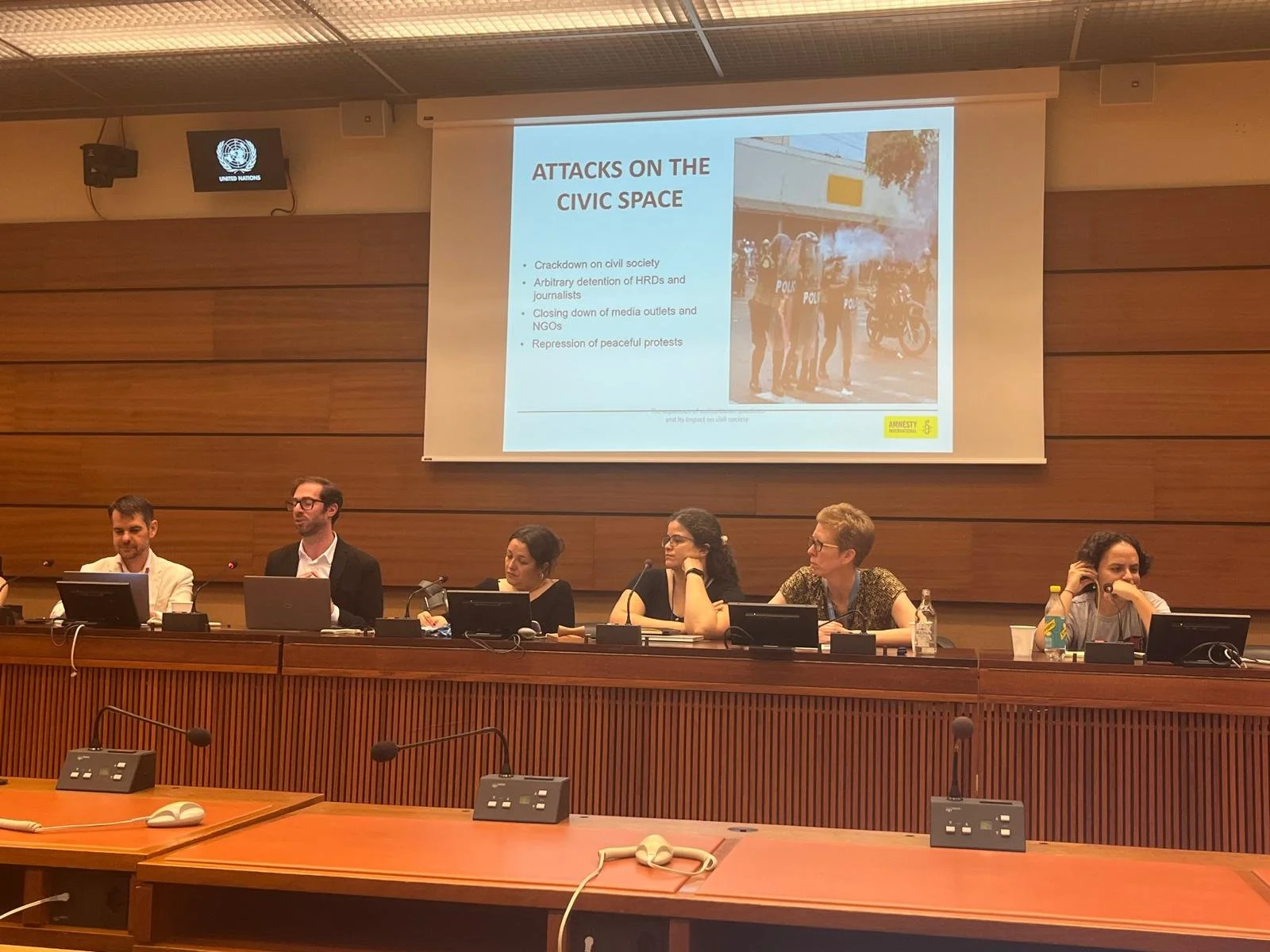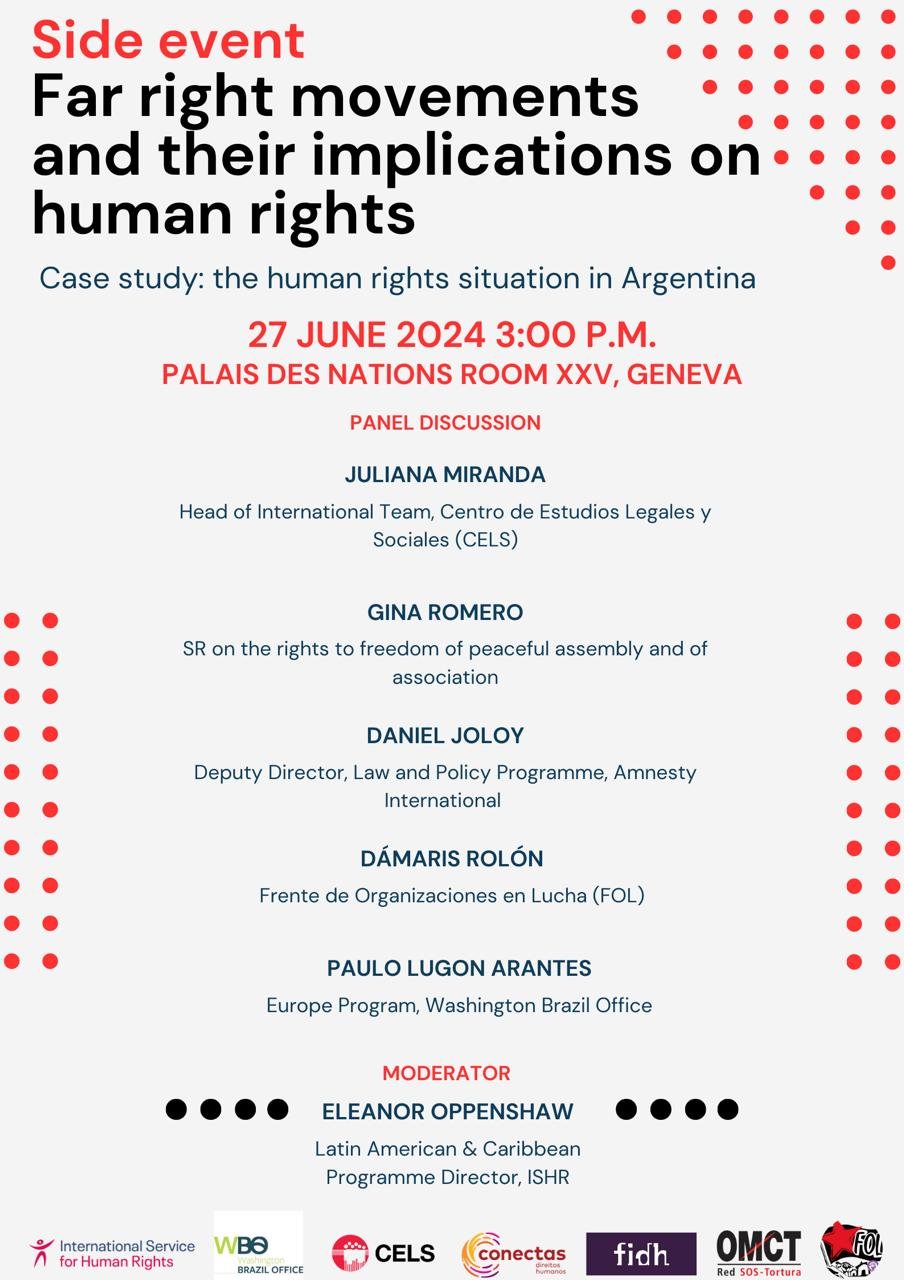The rise of the far right threatens the very functioning of democracies
WBO Statement
June 27 2024
Event takes place in parallel with the United Nations Human Rights Council Session in Geneva
The panel has the participation of six national and international partner organizations
The Washington Brazil Office (WBO) was one of the co-sponsors of the “side event,” the name given to events taking place parallel to the UN Human Rights Council Session in Geneva, entitled called “Extreme Right Movements and Their Implications for Human Rights: Case Study of the Human Rights Situation in Argentina”.
The event was organized together with a group of six other partner organizations: Centro de Estudios Legales y Sociales (CELS), International Service for Human Rights (ISHR), Organization Mondiale contre la Torture (OMCT), Federation Internationale des Droits de l' Homme (FIDH), Frente de Organizaciones de Lucha (FOL), Conectas Human Rights and the WBO.
Paulo Lugon Arantes, coordinator for the WBO Europe Program, was part of the panel, and in his speech he emphasized the intense international work carried out by the organization in 2022 in Geneva, Brussels, and the United States to alert the world to the risks that the Brazilian electoral process and Brazilian democracy were facing at that time with the harassment of then President Jair Bolsonaro and his supporters.
Lugon narrated and contextualized Bolsonaro's resistance to accepting election results and the invasion of the headquarters of the three branches of the Brazilian government on January 8, 2023, in a frustrated coup attempt against the then recently sworn-in President Luiz Inácio Lula da Silva.
This work, carried out with embassies, diplomatic missions and civil society allies in Latin America, the United States and Europe, included seeking out international spaces given the closure of Brazilian civic space, which had effects on Brazilian exports, the blockade of the Amazon Fund, and damage to the government's reputation.
Lugon also cited the obstacles encountered in the transitional justice process in Brazil, such as the non-recognition of the sentence of the Inter-American Court of Human Rights in the 2010 case of Gomes Lund and Others (which deals with death of participants in the Araguaia guerrilla activities during the military dictatorship) in the context of the Amnesty Law, in addition to the partial implementation of the Truth Commission Report in 2014. The 1979 Amnesty Law prevents those involved in the crimes of the dictatorship (1964-1985) from being held accountable. Despite decisions contrary to the Brazilian Amnesty Law by the Inter-American Court, the Brazilian Supreme Court has refused to review the cases.
The WBO's representative also explained the organization’s experience in international activities in solidarity with civil society organizations in the region to ensure the functioning of Brazilian democracy.


